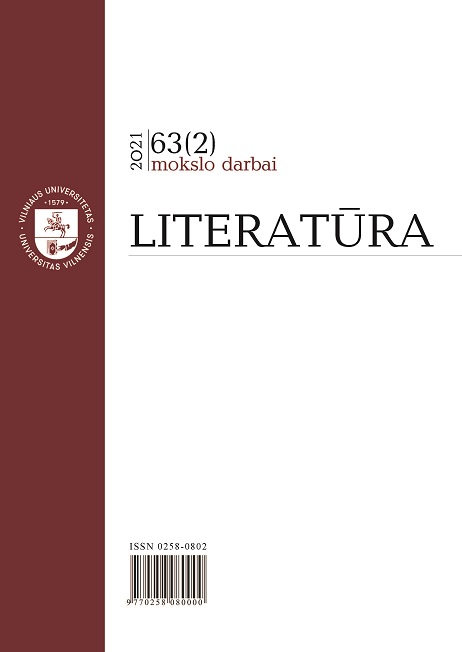В модернистской «школе для дураков»: топика письма и ученичества в немецкой и русской прозе ХХ–XXI вв.
In Modernist “School for Fools”: The Topics of Writing and Apprenticeship in German and Russian Fiction of the Twentieth and Twenty-First Century
Author(s): Vera Kotelevskaya, Maria MatrosovaSubject(s): Cultural history, Modern Age, Comparative Study of Literature, German Literature, Russian Literature
Published by: Vilniaus Universiteto Leidykla
Keywords: Robert Walser; Sasha Sokolov; Mikhail Shishkin; writing; modernism; comparative study;
Summary/Abstract: The article suggests a comparative analysis of the modernist writing and apprenticeship topics in German and Russian fiction of the twentieth and twenty-first century. Writing is considered to be calligraphy, a writer’s craft, the character’s existence as a scriptor, a form of escapism, a (neo)mythological ritual of destruction and renewal of language and the world. Apprenticeship is explored in its connection with rhetorical culture of imitation and forms of rebellion against it, be it rebellion against the bourgeois society (R. Walser, H. Hesse, T. Bernhard) or the Soviet school and Social Realism (S. Sokolov, M. Shishkin). The literary tradition serves here as an object of imitation and/ or deconstruction. This ambivalent attitude takes the form of irony, buffoonery, foolishness, schizophrenia and is rather often represented in the doppelganger motif. The study uses cultural-historical, comparative, narratological methods, leitmotif analysis, etc. The authors identifies new typological links between German and Russian literature.
Journal: Literatūra
- Issue Year: 63/2021
- Issue No: 2
- Page Range: 106-128
- Page Count: 23
- Language: Russian

